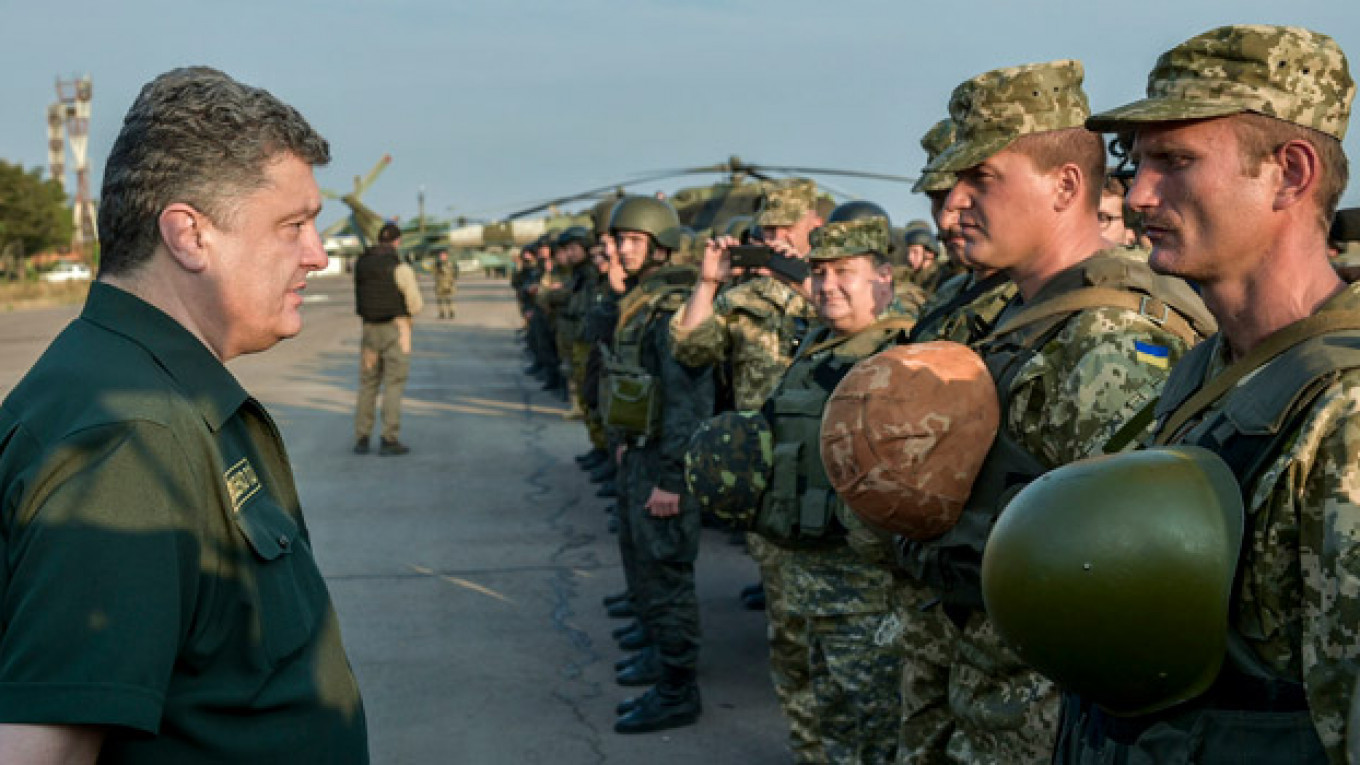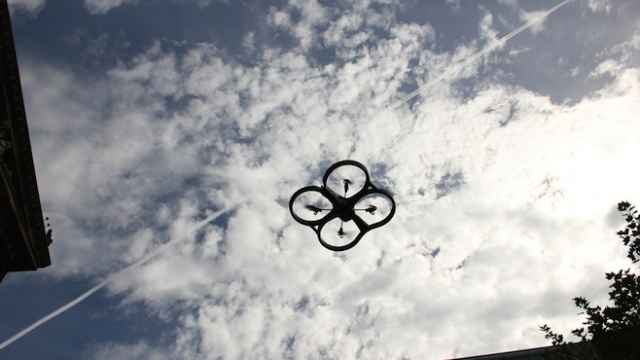Ukraine's president said Wednesday that Russia had removed the bulk of its forces from his country, raising hopes for a peace drive now under way after five months of conflict in which more than 3,000 people have been killed.
Moscow denies having sent troops into eastern Ukraine to support pro-Russian rebels battling Ukrainian forces, despite what Kiev and its Western backers say is overwhelming evidence to the contrary. Moscow also denies arming the separatists.
Ukrainian President Petro Poroshenko told a televised Cabinet meeting Ukraine would remain a sovereign, united country under the terms of a peace roadmap approved last Friday, but said parts of the east under rebel control would get special status.
"According to the latest information I have received from our intelligence, 70 percent of Russian troops have been moved back across the border," he said. "This further strengthens our hope that the peace initiatives have good prospects."
However, Poroshenko said the cease-fire was not proving easy to maintain because "terrorists" were constantly trying to provoke Kiev's forces.
Ukraine's military recorded at least six violations of the cease-fire overnight but said there were no casualties. Five servicemen have been killed during the cease-fire, Ukraine says. A civilian was also killed at the weekend during shelling of the eastern port of Mariupol on the Sea of Azov in eastern Ukraine.
Poroshenko said Ukraine was regrouping its forces in eastern Ukraine, not in preparation for a new offensive against the rebels, as the separatists themselves have suggested, but in order to defend territory from possible attack.
The Kremlin said President Vladimir Putin and Poroshenko were broadly satisfied with how the ceasE-fire, in place for nearly five days, was holding in Ukraine. The two leaders spoke by phone on Tuesday for the second time this week.
In his televised remarks, Poroshenko offered the rebels an olive branch by saying he would propose a bill next week offering "special status" to parts of the Donetsk and Luhansk regions of eastern Ukraine they now control.
But he was adamant in rejecting the separatists' demands for full independence for their regions and the kind of radical "federalization" favored by Russia.
"The Minsk protocol envisages the restoration and preservation of Ukrainian sovereignty on all the territory of the Donbass, including that controlled by the fighters," Poroshenko said.
City authorities in Mariupol, a key frontline in the conflict, announced on Wednesday tough new security measures including a night-time curfew to help control rebel movements.
Underlining the complexity of the conflict, armed Chechen fighters in the eastern city of Dnipropetrovsk told Reuters they had come to Ukraine to take revenge on "Russian invaders" who they said had destroyed their own North Caucasus homeland.
"They [the Russians] took everything from us, I had to bury all my relatives, my daughter … We are here now on a mission to save Ukraine," said their commander, Isa Munayev, who said he now had a Danish passport.
Meanwhile, Poroshenko has been invited to address a joint meeting of the U.S. Congress, congressional leaders said on Wednesday, an honor intended to underscore Washington's commitment to his country as it battles separatist pro-Russian rebels.
Republican John Boehner, the speaker of the House of Representatives, invited Poroshenko to address a meeting of the House and U.S. Senate on Sept. 18.
"Having President Poroshenko address Congress is another signal of our steadfast commitment to the aspirations of his people," Boehner said in a statement. "It will be an honor and a privilege to welcome him to the United States Capitol."
Foreign heads of states and heads of government have been invited to address joint meetings of Congress since the early 1800s, normally to underscore their countries' close allegiance with the U.S.
The last such address by a foreign leader was South Korean President Park Geun-hye's more than a year ago, on May 8, 2013.
A Message from The Moscow Times:
Dear readers,
We are facing unprecedented challenges. Russia's Prosecutor General's Office has designated The Moscow Times as an "undesirable" organization, criminalizing our work and putting our staff at risk of prosecution. This follows our earlier unjust labeling as a "foreign agent."
These actions are direct attempts to silence independent journalism in Russia. The authorities claim our work "discredits the decisions of the Russian leadership." We see things differently: we strive to provide accurate, unbiased reporting on Russia.
We, the journalists of The Moscow Times, refuse to be silenced. But to continue our work, we need your help.
Your support, no matter how small, makes a world of difference. If you can, please support us monthly starting from just $2. It's quick to set up, and every contribution makes a significant impact.
By supporting The Moscow Times, you're defending open, independent journalism in the face of repression. Thank you for standing with us.
Remind me later.






